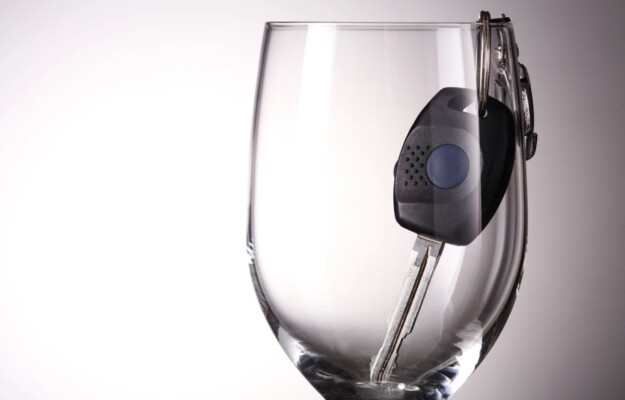The new Highway Code, particularly the section concerning penalties for driving under the influence, which came into effect at the end of 2024, remains a central topic of the debate. It’s important to reiterate that the legal limits for sanctions didn’t change from those established in 2010 (under 0.5 of blood alcohol content, i.e. there are no grams of alcohol for blood liter, except for young drivers, and some professional categories, then we go from 0.5 to 0.8 for a first group, up to 1.5 for an other step, and over 1.5 for the last “share”, ed). However, in recent months, various appeals and concerns have emerged from the wine and restaurant industries regarding the potential impact of the reform on the daily lives of consumers and professionals. Some have even reported a decline in orders, attributing it to widespread alarmism and customer hesitation even toward moderate consumption, which, it should be noted, does not result in a “license withdrawal”.
In the meantime, at the horizon, an awaited new element is glimpsed, and which doesn’t have to generate further alarmism, i.e. the possible introduction of alcolock In Italy already starting from the month of July 2025. Official nature still miss, and, therefore, the last passages to complete, but the arrival of what is one of the most significant “new-entries” of the new Highway Code reform, and which raised worries also by the wine of world, could become reality also starting from summer 2025. Lawyer Marco Giuri of Studio Giuri, in Florence, underlines it in a sheet, who is among the maximum experts of law of wine sector. The Ministry of Infrastructure and Transport has drafted and submitted the implementing decree necessary to make the alcolock measure operative. The text was prepared swiftly following the reform of the Highway Code. It has now been sent to Brussels, to the European Commission, for the notification procedure and to verify its compatibility with Eu law (as required by national technical regulations that impact the European market). Now, the European Union has until June 18, 2025, to raise any technical observations or objections, and, if no issues are raised by that date, the measure will be considered tacitly approved.
The alcolock, as is now well known, becomes mandatory for those who have been definitively convicted of driving under the influence in more serious cases, specifically when a blood alcohol level of 0.8 grams per liter or higher is detected. It is an electronic device that prevents the vehicle from starting if it detects alcohol in the driver’s breath. Its operation is similar to that of a breathalyzer: before starting the car, the driver must blow into a special mouthpiece, and if the amount of alcohol detected exceeds the set threshold, the engine is blocked and the vehicle cannot be started. To start the vehicle, the driver must have a blood alcohol level at zero.
As mentioned, the installation of the alcolock will become mandatory for individuals who have received a final conviction for driving while drunk with a blood alcohol level exceeding 0.8 grams per liter. In such cases, the device must be used for two years following the license suspension period (from six months to one year). For those with a blood alcohol level exceeding 1.5 grams per liter, the obligation extends to three years, after a license suspension of one to two years, as determined by the prefect. In certain cases, the Medical Commission may impose stricter conditions. The alcolock is considered to be a rehabilitative and safety measure aimed at individuals already convicted of driving while drunk. Its purpose is to prevent repeat offenses by imposing a total control (zero tolerance). The device blocks the engine even if the blood alcohol level is as low as 0.1 g/L, which is below the legal limit for regular drivers (0.5 g/L). In fact, if the detected level is above 0.0 g/L, the vehicle will not start. This means that anyone using the vehicle must be completely sober, even if they are not subject to legal restrictions. This could lead to a paradoxical situation that may require regulation: if the vehicle is the only one available in a household, even family members who have not been convicted would have to use the alcolock. Therefore, if they have consumed alcohol, even within legal limits, they would still be unable to start the car.
From a technical standpoint, the use of single-use mouthpieces is mandatory for each use of the alcolock. This brings us to the issue of costs (although not yet fully defined), are expected to be high and borne by the offender. These include the installation of the device, periodic calibration, and the disposable mouthpieces. The estimated initial cost is around 2.000 euros, plus recurring expenses. It will also be mandatory to keep on board, and make available for inspection by law enforcement, the alcolock’s certification of compliance and updated calibration records. Naturally, there will be hefty penalties for violations. Driving without the mandatory alcolock will result in a fine ranging from 158 to 638 euros, along with a license suspension from one to six months. Driving while drunk when the alcolock is required increases the fine by one-third, and penalties are doubled in cases of tampering with the device.
The upcoming introduction of the alcolock in Italy - comments studio Giuri - aligns with practices already in place for years in several European countries, including France, Austria, Belgium, Denmark, Poland, Lithuania, Sweden, and Finland. In these countries, the device is used as a rehabilitative alternative to license suspension. The goal is to encourage a change in driver behavior, helping individuals understand the importance of not consuming alcohol before driving and thereby reducing the risk of recurrence.
Copyright © 2000/2026
Contatti: info@winenews.it
Seguici anche su Twitter: @WineNewsIt
Seguici anche su Facebook: @winenewsit
Questo articolo è tratto dall'archivio di WineNews - Tutti i diritti riservati - Copyright © 2000/2026






































































































































































































